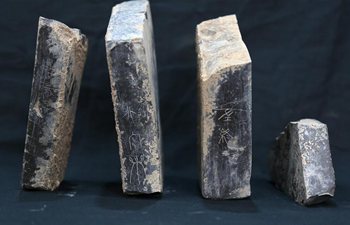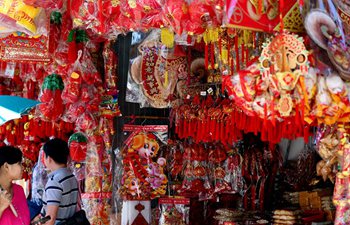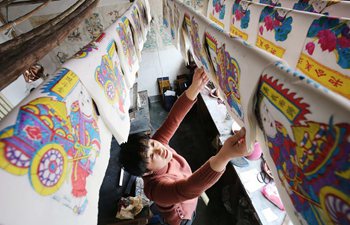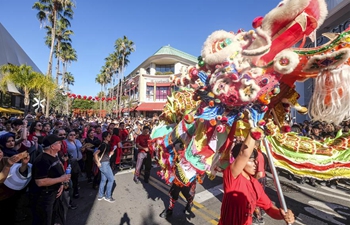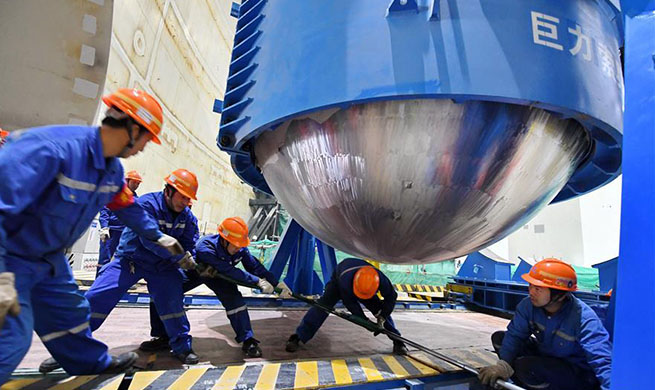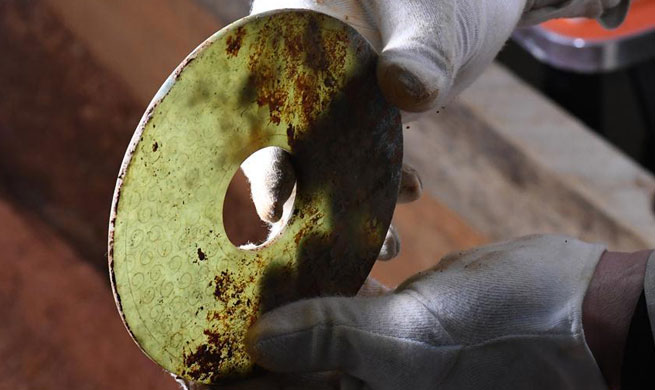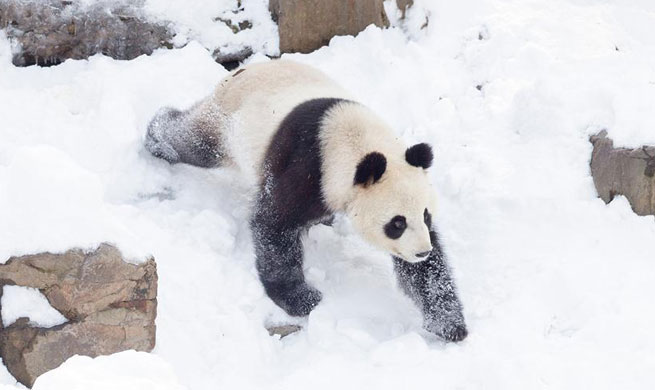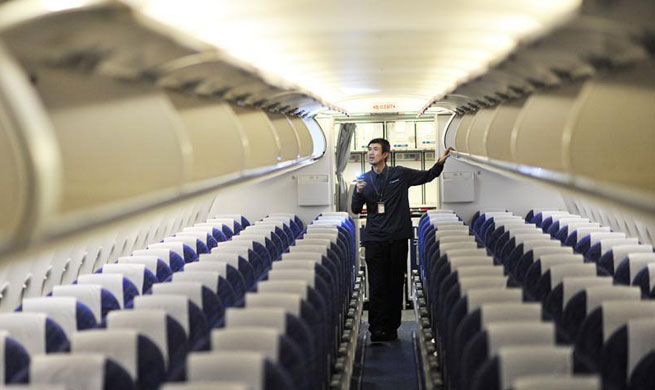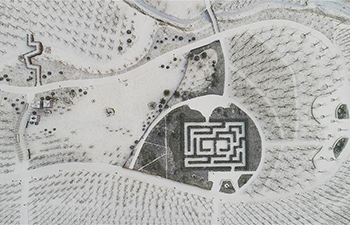BEIJING, Jan. 29 (Xinhua) -- A Danish woman publishes a web novel inspired by a Chinese fantasy genre; Netflix acquires a popular Chinese detective drama; the first bilingual English-Chinese prep school opens in London...
Chinese culture is being acknowledged by more and more people worldwide, who are eager to know more than just the Great Wall or Jackie Chan.
POPULAR MODERN CULTURE
WuxiaWorld.com -- a website sharing English translations of Chinese martial arts and fantasy novels -- has gained popularity in recent years, with more than 4 million daily page views and 260,000 daily unique visitors, according to Alexa.com, an internet traffic statistics provider.
Danish author Tina Lynge Hansen published a fantasy web novel "Blue Phoenix," which she said is inspired by the Chinese fantasy genre xianxia, which literally means "immortal hero."
"It is a story that has caused me to spend countless hours researching the Chinese culture and Taoism with the hope of getting a perfect understanding about the basics," she said in a post on fictionpress.com.
As early as the 1980s, Chinese kung fu movies impressed global audiences. Today, more forms of Chinese culture are striking a chord with people from around the world.
The world's leading internet-based video-on-demand service, Netflix, acquired the hit Chinese detective drama "Day and Night" at the end of last year and plans to make it available in all of its over 190 active markets.
Countries in North America, the Asia-Pacific and Africa are no strangers to Chinese content. In addition to "Day and Night," Netflix has also streamed "Nirvana in Fire," "Ode to Joy," and "Empresses in the Palace," among others.
Chinese TV series' are winning the hearts of audiences beyond China's borders. They are either translated online by fans or in locked up distribution deals in other countries,
"Wolf Warrior 2" led the overseas box office figures for the nearly 100 Chinese movies released internationally in 2017. Chinese movies earned 4.25 billion yuan (about 662.7 million U.S. dollars) in foreign markets last year, 11.19 percent more than the year before, according to China Film News.
People from different cultures are increasingly exploring and studying modern Chinese culture.
INNOVATING TRADITIONAL CULTURE
The 2017 Venice Biennale Golden Lion for Lifetime Achievement was awarded to Tan Dun, a distinguished Chinese composer, for his "creativity born and bred in the orient that has so intensely engaged with and indeed bonded with the west."
According to Tan, also a Grammy and Oscar winner, creative ideas do not come out of nowhere; rather, they come from years of constant research of traditional culture "like an archeologist."
Tan was invited to compose a piece of music for the exhibition "Age of Empires: Chinese Art of the Qin and Han Dynasties" held in the Metropolitan Museum of Art in New York last year. He delivered a well-received symphony inspired by the renowned terracotta army warriors, which were once brightly colored, but whose dye faded away after they were unearthed.
Through the use of modern art forms, historical relics and cultural heritage can be more widely understood by the general public. This is a tactic that has been accepted and mastered by many contemporary Chinese artists.
The experimental Peking opera "Faust," combining a classic German legend with an innovation of traditional Chinese opera, was staged in Europe in 2015, and the Chinese ballet "Peony Pavilion" received praise at theaters in the United Kingdom and United States.
Traditional Chinese culture continues to enchant people around the world with its enduring mysteries being presented in new art forms.
INCREASED NATIONAL POWER
In November 2017, U.S. President Donald Trump's six-year-old granddaughter Arabella Kushner made headlines after a video clip showing her reciting ancient Chinese poems and singing Chinese songs went viral during Trump's China visit.
Kushner is just one of many American children learning Chinese. An increasing number of K-12 schools in North America and Europe offer Chinese language classes.
Kensington Wade is the first prep school in the United Kingdom to offer a dual-language English-Chinese education from ages 3-11, according to its website. The school opened in London in September 2017.
According to the headmistress Joanna Wallace, parents "want to equip their children with the Chinese language, as China is playing an increasingly important global role."
Confucius Institutes around the world also have played an indispensable role in promoting Chinese language learning. Since 2004, a total of 516 Confucius Institutes and 1,076 related courses have been established in 142 countries and regions, receiving more than 9 million students, said Ma Jianfei, deputy chief executive of Confucius Institute Headquarters.
Chinese literature has gained increasing acknowledgement from global awards committees. Writer Mo Yan won the 2012 Nobel Prize in Literature. Liu Cixin, author of "The Three-Body Problem," was the first Chinese author to receive the Hugo Award for Best Novel in 2015. Cao Wenxuan was awarded the Hans Christian Andersen Award in 2016.
Nobel laureate and well-known French writer Jean-Marie Gustave Le Clezio said with China's growing national power, Chinese literature is increasingly important in terms of international status.
China is ready to build stronger cultural confidence, according to a report delivered at the 19th National Congress of the Communist Party of China in October 2017.
"We must develop a socialist culture with Chinese characteristics, inspire the cultural creativity of our whole nation, and develop a great socialist culture in China," it reads.
Despite the growing international presence of Chinese culture, we cannot overlook the fact that the country still has a long way to go, said Zhang Yiwu, an professor of Chinese literature at Peking University.
"The most urgent issue is to match our cultural products with others' demands, while preserving our own identity," Zhang said. Enditem





